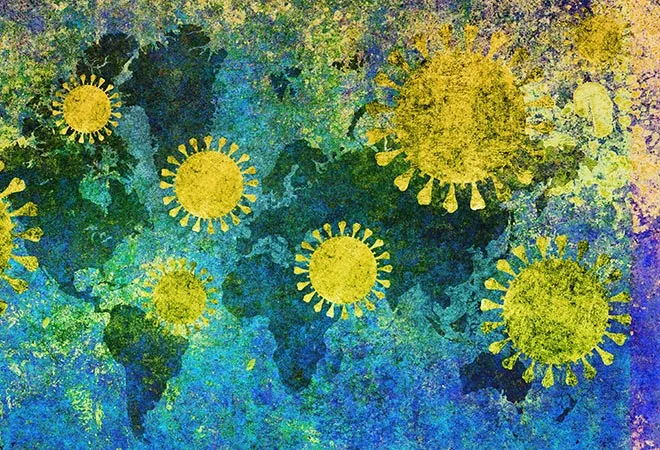
The Covid19 pandemic is the worst crisis humankind has experienced since at least the 1930s. The Covid-19 virus has no economic, demographic, political or social boundaries, but strikes wherever conditions are conducive to its deadly transmission.
In the Caribbean, at least 32 countries have already been affected, while the risks of future importation of the virus and the associated socio-economic consequences remain incredibly high. According to the
Caribbean Public Health Agency’s report on 8 April, 33 countries, areas or territories are affected by the virus, with 4016 cases and 185 deaths reported.
The table below provides a summary of Covid-19 cases in selected countries in the region, as of 9 April.
| Country |
Number of Confirmed Cases |
Number of Deaths |
| Anguilla |
3 |
0 |
| Antigua and Barbuda |
19 |
1 |
| Bahamas |
40 |
7 |
| Barbados |
13 |
3 |
| Belize |
8 |
0 |
| British Virgin Islands |
3 |
0 |
| Cuba |
515 |
15 |
| Cayman Islands |
37 |
1 |
| Grenada |
12 |
0 |
| Guyana |
37 |
6 |
| Haiti |
27 |
1 |
| Jamaica |
63 |
4 |
| Martinique |
154 |
6 |
| Monserrat |
8 |
0 |
| Saint Lucia |
14 |
0 |
| Saint Kitts and Nevis |
11 |
0 |
| Suriname |
10 |
1 |
| Trinidad and Tobago |
109 |
8 |
| Turks and Caicos |
8 |
1 |
|
1091 |
54 |
A cursory glance at the table reveals that on 8 April there were 1091 cases and 54 deaths in 19 countries in the Caribbean region. Confirmed cases have ranged from three to 515, while the number of deaths has ranged from zero to 15, indicating the differentiated spatial effect of the virus. Cuba has had the highest number of cases (515) and deaths (15), followed by Trinidad and Tobago with 109 cases and eight deaths.
Both countries have a population of over 1 million; Cuba has 11.46 million (as of January 2020) compared to 1.40 million people in Trinidad and Tobago. On the other hand, territories such as Anguilla and the British Virgin Islands, with populations of 16,187 people and 30,180 people respectively, have registered three deaths each. Additionally, it is reasonable to expect these cases to increase exponentially unless several interrelated and supportive measures are implemented promptly and effectively.
There are several factors that have contributed to the transmission and spread of Covid-19 in the region: the migration process (emigration and immigration); the nonchalant attitudes of the people and their refusal to adhere to precautionary measures; the lack of adequate facilities to allow for random tests, and enable the limited human, financial, material and physical resources to be focused on areas with clusters of confirmed cases; poor health etiquette, such as failing to wash hands thoroughly (may be due to the absence of social infrastructure such as potable water supply) and not wearing a face mask (due to civil resistance, lack of financial capital to purchase the masks, or inadequate supply available to the public); and, complacency caused by lack of awareness and knowledge about Covid-19.
The effects of Covid-19 have varied. The number of cases and deaths previously mentioned have resulted in curfews, the closure of educational institutions and businesses (except pharmacies and supermarkets), shorter banking hours, and many workplaces permitting employees to work from their homes or on a rotational basis. The cumulative effect has led to other issues: the loss of lives; decreased productivity; loss of revenue (particularly associated with the tourism and hospitality industry); loss or reduction of household incomes; increased poverty; increased psychological suffering of families; and the loss of human capital, which is central to a country’s socio-economic development.
Some of the measures that have been implemented in the region, with some degree of success, include:
- The imposition of regulation such as the Bahamas Emergency Powers (Covid-19), or the Public Health Ordinance Regulations covering Covid-19 in Trinidad and Tobago. Such regulations grant the health ministers the power to impose restrictions on their citizens. Ignoring these restrictions could result in substantial fines and/or several months of imprisonment
- Testing and subsequent isolation/quarantine
- Contact tracing to minimise the risk of transmission
- Travel ban/restrictions
- Social distancing
- Curfews: in some countries, for 24 hours; in others from 6 pm to 6 am
- Public awareness and education campaigns via the radio, television and social media
- Hotlines for people to seek information, clarifications or report cases
With the Caribbean countries already facing the existential threat of anthropogenic climate change, the Covid-19 virus epidemic could not have ‘attacked’ at a more inopportune time. Gains made towards achieving the sustainable development goals could be undermined, given the current pressure for countries to divert their financial capital to develop the necessary infrastructure and technology to help guarantee the survival of their human capital.
Covid-19 has provided governments with an opportunity to revisit their level of emergency preparedness. To this end, there is a need for the Caribbean community to design a holistic and forward-looking strategy to help member countries recover and to increase their resilience to any future pandemic. Data gathering and analysis, using tools such as geographic information systems and participatory appraisals must become a norm to ensure evidence-based policymaking. If such initiatives are carefully explored and implemented, the Caribbean region will have a chance at a brighter future. But the time to act is now.
The views expressed above belong to the author(s). ORF research and analyses now available on Telegram! Click here to access our curated content — blogs, longforms and interviews.
 The Covid19 pandemic is the worst crisis humankind has experienced since at least the 1930s. The Covid-19 virus has no economic, demographic, political or social boundaries, but strikes wherever conditions are conducive to its deadly transmission.
In the Caribbean, at least 32 countries have already been affected, while the risks of future importation of the virus and the associated socio-economic consequences remain incredibly high. According to the Caribbean Public Health Agency’s report on 8 April, 33 countries, areas or territories are affected by the virus, with 4016 cases and 185 deaths reported.
The table below provides a summary of Covid-19 cases in selected countries in the region, as of 9 April.
The Covid19 pandemic is the worst crisis humankind has experienced since at least the 1930s. The Covid-19 virus has no economic, demographic, political or social boundaries, but strikes wherever conditions are conducive to its deadly transmission.
In the Caribbean, at least 32 countries have already been affected, while the risks of future importation of the virus and the associated socio-economic consequences remain incredibly high. According to the Caribbean Public Health Agency’s report on 8 April, 33 countries, areas or territories are affected by the virus, with 4016 cases and 185 deaths reported.
The table below provides a summary of Covid-19 cases in selected countries in the region, as of 9 April.
